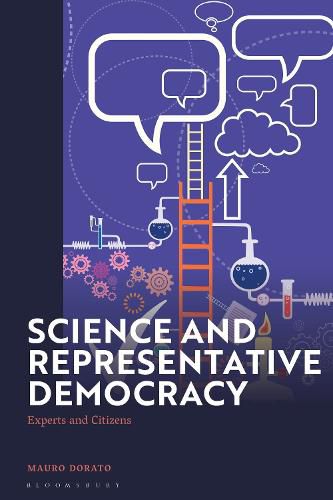Readings Newsletter
Become a Readings Member to make your shopping experience even easier.
Sign in or sign up for free!
You’re not far away from qualifying for FREE standard shipping within Australia
You’ve qualified for FREE standard shipping within Australia
The cart is loading…






Mauro Dorato charts pressing debates within the philosophy of science that centre around expertise, access to knowledge, consensus, debate and decision-making.
This English-language translation of Disinformazione Scientifica e Democrazia argues that the advancement of science depends on an exponential process of specialization, accompanied by the creation of technical languages that are less and less accessible to the general public. Dorato reveals how such a process aligns with representative forms of democracies in which knowledge and decision-making is pyramided in terms of ‘the general interest’. Despite being based on the principle of competence, the role of experts as mediators of scientific knowledge threatens the autonomy of the citizen and calls for new ways to increase the level of literacy about science and its philosophical and probabilistic foundations. Using an opposition between pluralism and conformism, Scientific Methodology and Representative Democracy reveals the obstacles to the functioning of both science and democracy.
$9.00 standard shipping within Australia
FREE standard shipping within Australia for orders over $100.00
Express & International shipping calculated at checkout
Mauro Dorato charts pressing debates within the philosophy of science that centre around expertise, access to knowledge, consensus, debate and decision-making.
This English-language translation of Disinformazione Scientifica e Democrazia argues that the advancement of science depends on an exponential process of specialization, accompanied by the creation of technical languages that are less and less accessible to the general public. Dorato reveals how such a process aligns with representative forms of democracies in which knowledge and decision-making is pyramided in terms of ‘the general interest’. Despite being based on the principle of competence, the role of experts as mediators of scientific knowledge threatens the autonomy of the citizen and calls for new ways to increase the level of literacy about science and its philosophical and probabilistic foundations. Using an opposition between pluralism and conformism, Scientific Methodology and Representative Democracy reveals the obstacles to the functioning of both science and democracy.